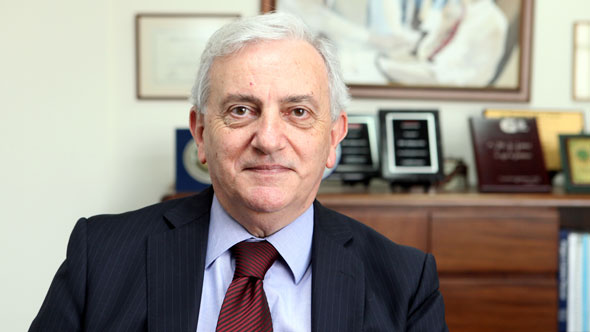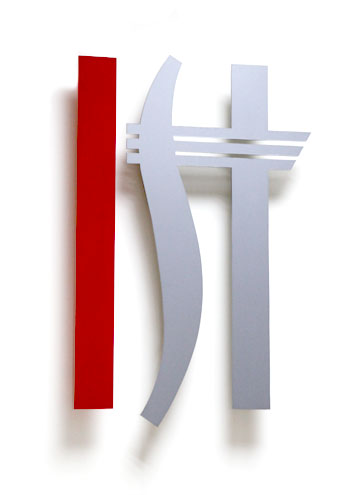Leader in Banking, Insurance and ERP Software Products in Lebanon
Joe Faddoul, Chairman of BML Istisharat
Joe Faddoul describes BML Istisharat as a boutique IT company which products can smoothly run in London, Mauritania, Kuala Lumpur as well as in Paris. The banking, insurance and ERP products of BML Istisharat run in many languages, too. Mr. Faddoul says that adaptation and flexibility are the keys for the success a business like BML Istisharat.
Interview with Joe Faddoul, Chairman of BML Istisharat

Let’s talk about the IT industry in Lebanon: what are the trends and the opportunities? Is the government doing enough to support companies like yours: BML Istisharat?
As you know, Lebanon has no raw materials or natural resources, so IT is typically an industry which can be developed in Lebanon, using the country as a platform. It is helped by the fact that the Lebanese people are multilingual and can adapt to different environments. It is also possible to be based in Lebanon but export wherever you want in the world, as there is no need for containers or transport. These are the opportunities for the IT industries here. Regarding the government, all we ask from them is not to interfere with us. We are not asking for subsidies or financial aid, just a little bit of law and order, an open airport and functional telecommunications. It seems the government is providing this, so all is well in this respect.
What are some of the specific challenges related to developing IT industry? Many countries are facing, for example, an educated, IT-literate workforce.
We have no difficulty finding IT specialists. There are a lot of universities here, including American and French universities as well as local ones, so it is not hard to find the right people. The main challenge has been peoples’ perceptions of Lebanon.  When we tried to export our products, they would ask us if the situation was peaceful, if the airport was open and so on. Of course, they wanted make sure that when choosing our product, we would be able to contact them and communicate with them or visit them. There was a war here from 1975 to 1990 and we still have some difficulty extricating ourselves from this perception.
When we tried to export our products, they would ask us if the situation was peaceful, if the airport was open and so on. Of course, they wanted make sure that when choosing our product, we would be able to contact them and communicate with them or visit them. There was a war here from 1975 to 1990 and we still have some difficulty extricating ourselves from this perception.
How big is the Lebanese IT sector now? How many companies are there? Is the Lebanese IT an active industry, and is it growing? Can you predict the growth of the IT sector in the years to come?
The Lebanese IT sector is growing; at least, we feel the sector is growing. There are a lot of companies in Europe and the US who are not that visible, but are outsourcing their developments in Lebanon. BML Istisharat is not an outsourcing company – BML Istisharat has developed its own products – but a lot of companies in the wider IT sector are outsourcing their developments in Lebanon, which is good.
As for the development of the IT sector in Lebanon, I can’t predict growth for the IT sector as a whole, but as far as BML Istisharat is concerned, we expect to reach a relative rate of growth of around 17-18% annually.
BML Istisharat – as an exporting IT company – is, I would say, a Lebanese success story. If I have been calculating correctly, 87% of your business is in exports, with only 13% in the local market. Some of the clients of BML Istisharat are the largest companies in the Fortune 500 list. Perhaps you can tell us about the story of BML Istisharat and how you have managed to accomplish this?
Well, we started out as a consultancy in 1972. In 1975, when the war broke out, nobody consulted with anybody, so the only activity with any meaning was IT, as our clients still needed payrolls and inventories and so on. Despite the war, the banking sector flourished, and BML Istisharat followed it by providing the local banking sector in Lebanon with IT solutions. In the early and mid 1980’s, the local currency lost value due to the war, so in order to continue paying the staff decent salaries BML Istisharat had to dollarize the payroll, which meant the company had to export. That was the main driver for exporting, and BML Istisharat began in France, partnering with companies such as IBM, Oracle and HP. These companies helped introduce us to the European markets, and supported us there, because each time BML Istisharat sold one of its products, they sold their hardware or operating system.
… we are at ease in different markets and our banking product, for example, can run in London and in Mauritania, or in Kuala Lumpur as well as in Paris. Our products run in Arabic, Kurdish, English, Greek, Russian, Dutch, French and so on. The name of the game is parameterisation, flexibility, adaptation.
We then tried the US, and succeeded in exporting BML Istisharat insurance products to the US, and now we are seeking new territories in the Far East. We just scored our first deal with a local bank in Malaysia, which means our software is up and running in more than 30 countries: in the US, Europe, Africa, the Middle East, and now in Asia. During the next five years our efforts will be focused on Russia, the CIS countries and Asia.
Now you are operating globally, you are meeting with a lot of competition. What do you think are the main ingredients of the competitiveness of your company?
I think we are more agile and more reactive than the big companies. If you ask for an amendment in the software from a company with 5,000 employees it takes some time to go through all the procedures and processes. We can be more agile and adapt to different environments more flexibly than the big companies. We welcome globalisation. We want the client or the prospect to be able to compare, and we feel that if they are able to compare, a lot of prejudice will disappear.
How difficult is it to get known out there, to persuade clients that your company provides them with the right solutions, rather than a global heavyweight?
We have been ranked eighth worldwide by the IBS in the UK and have been selected by Gartner in the Magic Quadrant. Because of this we are now receiving RFPs from all over the world. Of course BML Istisharat is not heavyweight; I think we are more of a boutique firm. BML Istisharat is an equivalent of a boutique hotel in the world of IT, banking and insurance: we pamper our clients and build a personal relationship with them.  Of course, BML Istisharat has the disadvantage of not being able to compete directly with the heavyweights, but I think there is a place for both the heavyweight and the boutique. We also try and keep up with the latest developments in banking and insurance, and on the technical side we try to match the developments in our major platforms, mainly Europe.
Of course, BML Istisharat has the disadvantage of not being able to compete directly with the heavyweights, but I think there is a place for both the heavyweight and the boutique. We also try and keep up with the latest developments in banking and insurance, and on the technical side we try to match the developments in our major platforms, mainly Europe.
Could you tell us a bit more about your banking and insurance products, and the advantages they offer?
Without going into a sales talk, I can say that because we are not a heavyweight and because we were obliged to go into very diverse markets, we make a particular effort to parametrize our banking and insurance products. Parameterizing a product means that the end-user can adapt it to their own environment without continuously resorting to us. Most of our products are therefore not hard-coded, but contain the parameters in tables. This means that we are at ease in different markets and our banking product, for example, can run in London and in Mauritania, or in Kuala Lumpur as well as in Paris. Our products run in Arabic, Kurdish, English, Greek, Russian, Dutch, French and so on. The name of the game is parametrization, flexibility, adaptation.
We are also not the most expensive company. The cost of ownership of our product is relatively low, and nowadays we can offer support and maintenance without having to travel, using electronic networks.
Another challenge is of course cloud computing, where you sell specific software that is then implemented.
We have not yet found any clients wanting to go into cloud computing with our products. For the time being we are selling and implementing, although some of our clients are using us for outsourcing. With banking and insurance you have the banking secrecy law in some countries, and even without that it’s a very confidential business. It is this confidentiality that means there is a lack of a push towards cloud computing in the industry. However, technically, we are ready for cloud computing.
You also have insurance products and, I believe, a series of ERP products?
Yes, we do ERP for manufacturing SMEs. In fact, because of the new regulations, banking and insurance are no longer two different planets. Banks in most countries are now allowed to sell insurance products and insurance products are often linked to financial products, so banking and insurance are now heading towards what is called ‘bankassurance’. Since we already had the two products, it was natural to standardize them, and we now have a lot of clients using our bankassurance product, meaning both the banking and the insurance products together.
What sort of strategy do you have for the company now?
We want to consolidate our new markets and continue to be up to standard on a technical level.
What are the cross-border challenges that the company faces now, when expanding into new markets such as Russia, which is a totally different market to the Middle East?
First of all, banking and insurance are standardizing worldwide. The opportunity in Russia is that there are around 2,000 banks. They are all very interested in adopting the best practices, that is, the international practices, and they are using software as a short-cut. For example, traditionally you would bring in a consultant, who would review the business processes and then you would require the software to comply with your own processes. Now however, it is possible to introduce software that is already adapted to the best practices, and the bank can adapt to the software. We therefore go directly to the best practices, and a lot of Russian banks are thinking like that too, which is a good opportunity for companies like BML Istisharat.
With globalization the question of brand is very important. Do you see this being the issue in your industry, or do you think it’s more the quality of the product, or is it a combination of the two?
It’s a combination of the two, but we think that globalization plays in our favor because it means there is less prejudice toward one brand or the other, which helps us to penetrate the global market. Even the heavyweights were not initially global; their initial growth was in a specific market. People are now used to seeing new things, rather than focusing on established brands and companies. Another factor is that is very easy to give a demonstration, as you don’t even have to go anywhere to perform a demo. We can perform a demo here for someone in Russia, and this certainly makes things easier for small companies like ours.
I would say to the people looking at software: “Try us, it costs nothing and we can do the demos whenever you want.” I think that at least some of those people will choose us.